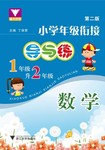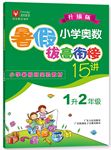题目内容
17.Q:Dear Dr.Wood,My husband and I are facing a dilemma,namely,the issue of whether to have a second child---we already have one healthy,happy five-year-old daughter.Both of us have demanding jobs,and limited time and financial resources,but we're also very keen to make sure that our only child does not become a lonely child.So,what are the pros and cons(利弊) of having a second child?[
A:Dear Andrea,
This is one of the most difficult issues that parents nowadays face.As you point out,a concern that is often heard with regard to only children is whether one child necessarily means a lonely child.Many parents of only children feel a stigma(耻辱) associated with their decision to have only one child.There are no other children in the family for the child to associate with,and this may lead to the child feeling lonely at times,especially during vacations.
Another common argument against having just one child is that an only child may be more spoiled than one with siblings.Many people believe that a single child will not have learned to negotiate with others,and respect the give-and-take involved in many relationships.Some think this may leave the child less capable of interacting well with people his or her own age than one who has been raised with siblings.
Advocates of single-child families argue that there are advantages for the child as well as the parents.With just one child,they suggest,there is less potential for family arguments arising from favoritism or sibling jealousy.Moreover,with only one child,the parents can give,and the child can receive,more quality time and attention.This often leads to increased self-esteem,which combined with increased independence,can lead to the child being more confident.Unfortunately,Andre,there is no simple answer to the question of whether or not to have a second child.The circumstances affecting each set of parents are unique,and what is appropriate for one family may not be for another.The important thing,in the end,is to make a decision that both you and your husband feel confident about.
28.The underlined word"siblings"in Paragraph 3refers toB.
A.friends and partners
B.brothers and sisters
C.classmates and teachers
D.parents and relatives
29.Which one is NOT the reason why some people are against having one child?C
A.An only child may be spoiled.
B.An only child may lack the ability to negotiate with others.
C.An only child may feel lonely.
D.An only child may not respect the give-and-take.
30.What can you infer from the passage?C
A.Dr.Wood doesn't think that an only child will feel lonely.
B.Andrea wanted to have a second child though her family was poor.
C.An only child may not need to deal with the problem favoritism.
D.Parents having an only child will feel lonely during vacations.
31.In which section will this passage appear?D
A.family
B.medicine
C.life
D.readers'letter.
分析 本文是一篇科教类阅读,主要讲述了现在的家长已经有了一个健康又快乐的小孩,但他们却面对了一个两难的问题,他们还要多一个孩子吗?他们有繁忙的工作和有限的时间还有金钱的问题要面对,但他们也不想要他们唯一的孩子寂寞.所以,第二个孩子有什么好处和坏处呢?
解答 28.B.词义猜测题.根据上下文内容可知,Another common argument against having just one child is that an only child may be more spoiled than one with siblings.句意为另一个常见的反对原因是只生一个孩子独生子女比有兄弟姐妹的更易被宠坏.故siblings意为兄弟姐妹.故选B.
29.C.细节理解题.根据There are no other children in the family for the child to associate with,and this may lead to the child feeling lonely at times,especially during vacations.Another common argument against having just one child is that an only child may be more spoiled than one with siblings.Many people believe that a single child will not have learned to negotiate with others,and respect the give-and-take involved in many relationships.可知,反对只生一个孩子的原因有独生子女缺乏与人合作能力,容易被宠坏,可能会不尊重礼让.没有提到C.故选C.
30.C.细节理解题.根据there is less potential for family arguments arising from favoritism or sibling jealousy.可知,独生子女不需要面对偏袒,嫉妒的问题.故选C.
31.D.推理判断题.根据文章内容,主要谈论了子女问题,且根据文章格式,属于书信.故会出现在读者的信上.故选D.
点评 本文是一篇科教类阅读,题目涉及多道细节理解题,词义猜测题,推理判断题.做题时学生应仔细阅读原文,把握文章主要内容,联系文章上下文内容并结合所给选项含义,从中选出正确答案,一定要做到有理有据,切忌胡乱猜测.

 浙大优学小学年级衔接导与练浙江大学出版社系列答案
浙大优学小学年级衔接导与练浙江大学出版社系列答案 小学暑假作业东南大学出版社系列答案
小学暑假作业东南大学出版社系列答案 津桥教育暑假拔高衔接广东人民出版社系列答案
津桥教育暑假拔高衔接广东人民出版社系列答案 波波熊暑假作业江西人民出版社系列答案
波波熊暑假作业江西人民出版社系列答案| A. | turn up | B. | bring up | C. | look up | D. | pick up |